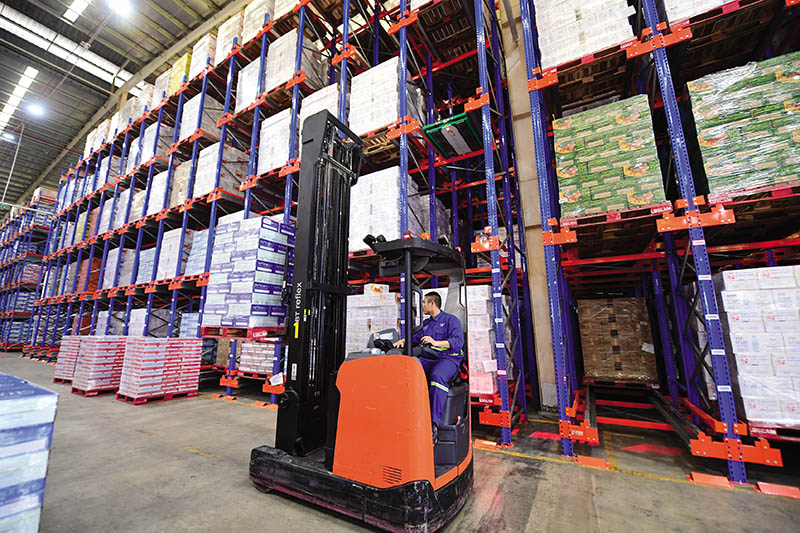 |
| It is necessary to establish an effective support tool system for Vietnamese enterprises investing abroad. Photo: Duc Thanh |
Impact of removing administrative barriers
Many Vietnamese enterprises have improved their capacity and become multinational enterprises when investing abroad. Lawyer Nguyen Hong Chung, investment policy expert and CEO of DVL Ventures, raised this issue when approaching the new proposal of the Ministry of Finance regarding regulations on foreign investment.
“The proposal to abolish licenses and replace them with a registration and post-inspection mechanism for overseas investment activities will be a strong institutional reform, bringing many positive impacts,” Mr. Chung expressed his opinion.
The most obvious point is the reduction of administrative barriers. According to the plan proposed by the Ministry of Finance, the procedure for approving foreign investment policies is under the authority of the National Assembly and the Prime Minister, and the procedure for granting foreign investment registration certificates under the authority of the Ministry of Finance will be abolished. When making foreign investments, investors will register with the State Bank of Vietnam about transferring money abroad.
Thus, many administrative procedures will be abolished, compliance costs will be significantly reduced, because the Investment Law stipulates that the scope of management of the agency issuing the certificate of registration for overseas investment is quite wide, covering all overseas investment activities (objectives, scale, location, scope of operation, total investment capital, etc.).
Mr. Chung analyzed that businesses, especially private businesses, small and medium-sized enterprises, can quickly deploy projects abroad, without having to wait for long approval times. This allows businesses to seize opportunities in the international market, especially in areas that require quick decisions such as trade, services, and technology.
The problem is that the management of foreign investment activities will be more substantial. In explaining the option, the Drafting Committee of the Ministry of Finance clarified that when investors register with the State Bank of Vietnam, the investors already have documents approving foreign investment (including investment licenses, business establishment certificates, capital contribution contracts or purchase of shares in foreign companies, etc.). At that time, investment activities will be more "certain" and "authentic".
The State Bank will also promptly compile and check the implementation of investment capital and the transfer of money back to the country through the banking system to promptly assess and adjust when there is an impact on the balance of payments and foreign exchange reserves. Moreover, the banking system has tools to promptly handle cases of non-compliance with regulations on reporting regime (such as temporarily suspending money transfers, freezing investment capital accounts in emergency cases...).
Vietnamese businesses must step out
Mr. Phan Huu Thang, Chairman of the Vietnam Industrial Park Finance Association (VIPFA), mentioned Viettel, Vinamilk, TH Truemilk,FPT ... as bright spots in Vietnam's foreign investment capital flow, in addition to state-owned economic groups which are the leading enterprises in foreign investment activities.
“No one thought that Vietnamese enterprises would invest in a milk processing plant in Europe. It is also impossible to share all the emotions when seeing people in many countries using Viettel mobile network as an inevitable choice. It is time for Vietnamese enterprises to step out and become foreign investors in countries and markets around the world,” Mr. Thang shared.
The excitement and opportunities from the world market are being rearranged after fluctuations in tariff policies, new development trends, etc., along with the growth of Vietnamese enterprises, making Mr. Thang very interested in overseas investment plans.
This step is even considered a proactive step that needs to be encouraged for Vietnamese enterprises to participate in the global production chain, seek opportunities to import technology, develop new markets, find customers, etc. However, Mr. Thang said that the barrier on the path of foreign investment of Vietnamese enterprises is not necessarily the market or the capacity of the enterprise, but is partly due to procedures.
Basically, private enterprises using their own capital to make overseas investments must comply with the legal regulations of the host country. However, according to the provisions of the Investment Law, Vietnamese state agencies approve many contents of the project, such as the form, scale, location, progress of the investment project, overseas investment capital, and capital sources.
During the meetings, many businesses were concerned that these contents were under the jurisdiction of the laws of the country receiving the investment, so the approval of the Vietnamese side did not have much meaning. Mr. Thang even said that this caution made it difficult for businesses to be flexible in seizing business opportunities.
In practice, many countries in the world only implement a regime of controlling the flow of money transferred abroad to carry out investment activities and have policies prohibiting or restricting money transfers abroad in certain cases, to ensure macroeconomic balance, as well as the legality of money sources, without managing all investment activities abroad.
Up to this point, only Vietnam and Laos still issue certificates of investment abroad. China does issue these certificates, but has loosened them, only managing large projects and some fields. Other countries have switched to a mechanism for investors to declare and register investment capital transferred abroad with the banking system when carrying out investment and business activities abroad.
According to international experts, foreign investment capital can play an important role in the development strategy as well as the growth of a developing country. Through this capital flow, the investing country can expand its export market and product consumption, creating many development opportunities for its businesses.
Of course, not all foreign investment flows are successful, bringing profits back to the country, but Mr. Thang believes that it is necessary to renew thinking and awareness, and consider foreign investment as an important part of the strategy, planning, and national socio-economic development plan. Along with perfecting institutions and policies related to foreign investment, the Government needs to develop and soon announce a complete and comprehensive Foreign Investment Strategy Project in the short, medium and long term.
In particular, an effective support tool system for businesses and investors going abroad needs to be established, such as promoting market research through trade and investment promotion organizations, diplomatic agencies abroad; providing financial support to implement foreign investment projects...
By the end of June 2025, Vietnam had 1,916 valid foreign investment projects, with a total Vietnamese investment capital of more than 23 billion USD. According to statistics, most of these projects have an investment capital of less than 20 billion VND, accounting for 67.4% of the total number of projects, but have a small proportion of capital (about 1.7% of the total foreign investment capital); the number of projects with an investment capital of over 20 billion VND accounts for about 28% of the total number of projects, but accounts for the majority of capital (about 98.3% of the total foreign investment capital); the rest are small projects under 1.2 billion VND (equivalent to 50,000 USD).
These projects are all subject to the Prime Minister's approval of the policy, or the issuance of a certificate of registration for overseas investment. To date, there has been no record of any overseas investment project subject to the National Assembly's authority to approve the investment policy.
Source: https://baodautu.vn/da-den-luc-doanh-nghiep-viet-tro-thanh-nha-dau-tu-nuoc-ngoai-d368064.html


![[Photo] Prime Minister Pham Minh Chinh chairs a meeting of the Government Standing Committee to remove obstacles for projects.](https://vphoto.vietnam.vn/thumb/1200x675/vietnam/resource/IMAGE/2025/10/06/1759768638313_dsc-9023-jpg.webp)
![[Photo] Prime Minister Pham Minh Chinh chaired a meeting of the Steering Committee on the arrangement of public service units under ministries, branches and localities.](https://vphoto.vietnam.vn/thumb/1200x675/vietnam/resource/IMAGE/2025/10/06/1759767137532_dsc-8743-jpg.webp)






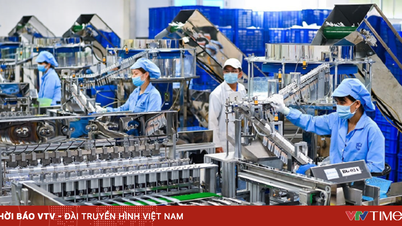
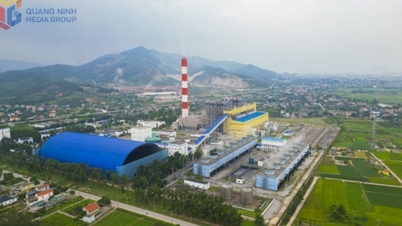

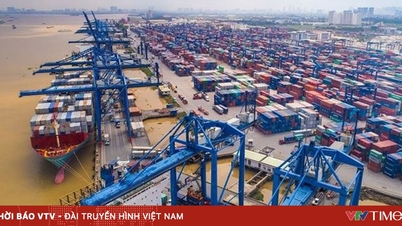
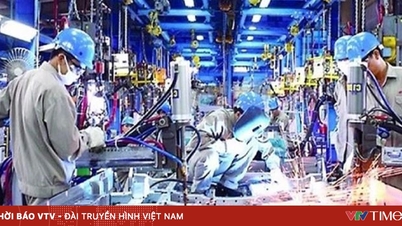


























































































Comment (0)